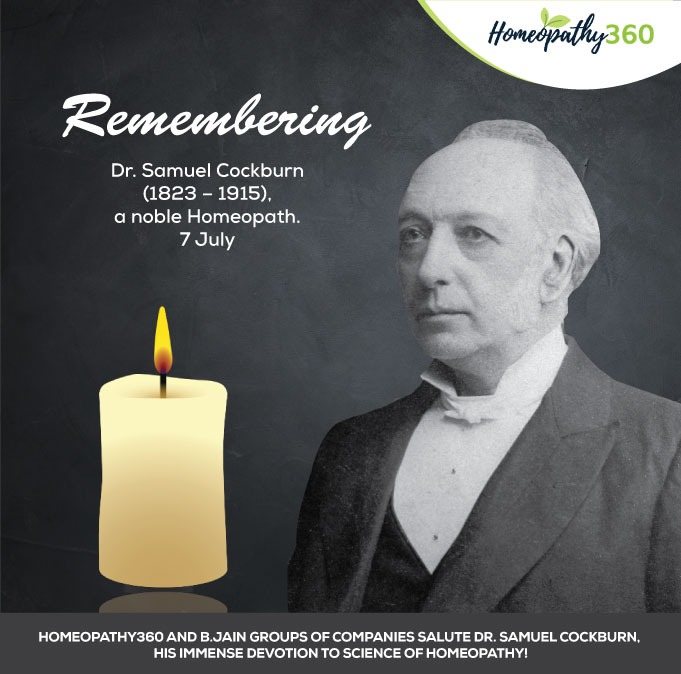
Samuel Cockburn was a conventionally trained Scottish physician who, early in his medical career, was won over by the principles of homeopathy. he was an outspoken defender of homeopathy and a critic of the medical establishment of the time.
Samuel Cockburn was born on born 17 March 1823 into a family of shoemakers in Duns, Scottish Borders. In 1848 he completed an MD degree from the University of St Andrews and received a Licentiate from the Royal College of Surgeons of Edinburgh (RCSEd).
Cockburn was evidently won over by the alternative medical system, and spent the first 14 years of his medical career as the physician at the Dundee Homeopathic Dispensary.
In 1857 Prof. Syme published his second open letter to the Prime Minister, Lord Palmerston, calling for medical reforms that would require strict conformity with the conventional practices advocated by the RCSEd. Cockburn’s work is both a strongly worded critique of conventional medical practices of that time (e.g. bloodletting and the ill-informed use of potentially dangerous medicines) as well as a vigorous defense of homeopathy. It attempts to discredit the medical establishment by giving examples of contradictory treatments recommended by contemporary medical theory (which Cockburn called allopathy, a derogatory term used by homeopaths).
In 1862 Cockburn moved to Glasgow, where he practiced homeopathy for the rest of his career. As well as practicing homeopathy at his clinic, Cockburn continued to lecture and publish articles on homeopathy. He was an active member of the British Homeopathic Society and a well-known member of the homeopathic community in Glasgow in the late 19th century. He died on 7 July 1915 in Glasgow.




